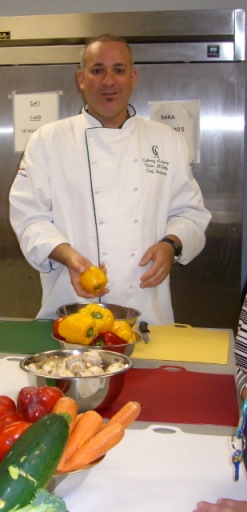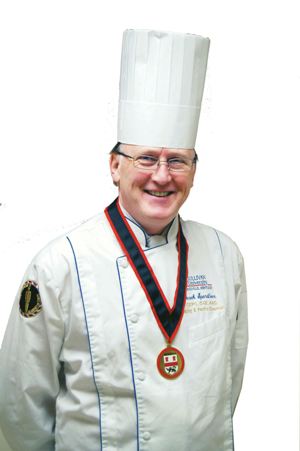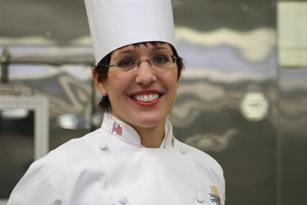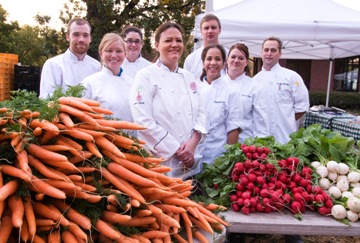Guest Speaker: Fork-Tender/Tough Love and the Zen of Classroom Management
By Victor J. McNulty
 To the ACCSC’s Instructor of the Year, a bad student is any good teacher’s job. The trick is to inspire the uninspired.
To the ACCSC’s Instructor of the Year, a bad student is any good teacher’s job. The trick is to inspire the uninspired.
Gordon Ramsay aside, the days of screaming chefs ruling with an iron fist over the kitchen kingdom has pretty much ended, in the U.S., anyway. We now live in a litigious/PC society where such behavior can get you into hot water, pun intended. If the chef should raise his or her voice, throw an item or mention an employee’s questionable upbringing, the ensuing results would not be worth the momentary satisfaction.
Most people are not motivated negatively, or at least not motivated to please their aggressor. They may even be driven to quit, steal, complain to a superior, vandalize, contact agencies like the Department of Labor and the Better Business Bureau, fist-fight or the crème de la crème (pun fully intended) of contacting the dreaded harassment lawyer. I’ve seen all the above.

 Sullivan University’s Derek Spendlove succeeds Guggenmos as chair; rest of commission named.
Sullivan University’s Derek Spendlove succeeds Guggenmos as chair; rest of commission named. When we work together, the foodservice workplace provides many opportunities to do well by doing good.
When we work together, the foodservice workplace provides many opportunities to do well by doing good. Here’s what every wine server should know.
Here’s what every wine server should know. What’s the difference between a private chef and a personal chef? Audrey Heckwolf of Grand Rapids Community College, who cooked for a Fortune 500 family, can tell you.
What’s the difference between a private chef and a personal chef? Audrey Heckwolf of Grand Rapids Community College, who cooked for a Fortune 500 family, can tell you. Knowing how to prepare the different stages of a fried egg is an important task that can easily be taught to your class in your culinary lab.
Knowing how to prepare the different stages of a fried egg is an important task that can easily be taught to your class in your culinary lab. The more you establish your expectation of participation and help students reach it, the better the learning experience for all.
The more you establish your expectation of participation and help students reach it, the better the learning experience for all. It’s easier to teach how to set the table and serve the guest than to teach the emotional skills of being passionate, caring, hard-working and intelligent.
It’s easier to teach how to set the table and serve the guest than to teach the emotional skills of being passionate, caring, hard-working and intelligent. Letting students fail a few times before showing them the tricks of the trade will make them more receptive.
Letting students fail a few times before showing them the tricks of the trade will make them more receptive. NRA’s latest “What’s Hot” survey lists “local” and “sustainable” as the biggest menu trends.
NRA’s latest “What’s Hot” survey lists “local” and “sustainable” as the biggest menu trends.